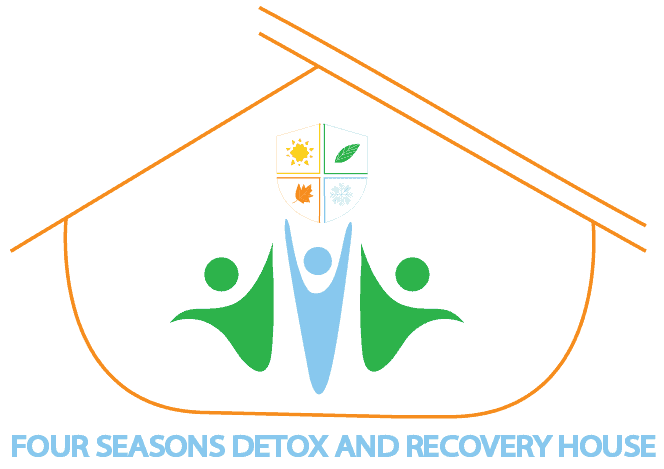One of the most common addictions, and one of the most difficult to stop, is benzo addiction. “Benzos” is short for benzodiazepines, a class of anti-anxiety medications that includes Xanax, Valium, Klonopin, and others. These drugs are commonly prescribed for those who have anxiety disorders, but what many people overlook is the fact that they are not meant to be used long-term due to how incredibly addictive they are.
Now, whether you’re taking them under the advice of your doctor or you’re purchasing them on the black market, you may end up in a place in your life in which you finally need to stop taking them altogether.
What is Benzo Detox?
Don’t detox from benzodiazepines alone; seek licensed professional guidance with experience in withdrawal. Why? Well, because withdrawing from benzodiazepines can come with some serious side effects that may be deadly. Cold turkey benzodiazepine withdrawal is dangerous; can cause seizures and serious health events.
That being said, a licensed professional can help you undergo benzo detox as safely and comfortably as possible. Again, we implore you to take this route for the sake of your health and safety.
What to Expect During Benzo Detox
How to detox from benzos doesn’t necessarily have a simple answer. Let’s cut to the case – detoxing from benzodiazepines is one of the most difficult forms of detox out there. Benzo withdrawal symptoms can be severe, even if you’re detoxing under the care of a professional.
The first step to detoxing from benzos is choosing a detox center. Most of these facilities offer both in-patient and out-patient programs, but if you have a more severe addiction, in which withdrawal symptoms can become dangerous, then it’s likely that you’ll need to do inpatient so that you can be under medical supervision.
Detox treatment centers all have their own modes of operation, but there will be an intake process in which you’ll be disclosing your relationship with the drug. This way, the professional staff can determine the severity of your addiction and what kind of personalized care you require.
Are You Prepared for Benzo Detox? Understanding the Process
It’s most likely that you’re going to be tapering off benzos rather than using the cold turkey method, as suddenly stopping their use can, as we said, be dangerous. Any way you begin benzo withdrawal, symptoms are likely to begin in about 24 hours. The severity of the symptoms depends on the severity of your addiction, the type of benzodiazepine you were using (shorter-acting drugs may mean a shorter withdrawal phase), and your body and health. Symptoms typically peak on day 2 and begin to get better on or after day 3.
Symptoms of benzo withdrawal include:
· Anxiety
· Paranoia
· Depression
· Agitation/low-stress tolerance
· Body aches (similar to the flu)
· Brain fog/difficulty concentrating
· Insomnia
· Nausea/vomiting
· Hallucinations
· Poor appetite
· Fever
· Sweating/chills
· Intense restlessness
· Seizures
How severe the symptoms are and how long does benzo detox last ultimately depends on the person. In severe cases, some of the more acute symptoms can last for up to several weeks – especially those related to mood, like anxiety, irritability, and depression.
A professional can help you through the process by helping you minimize your symptoms and even provide you with tools to stay off of Benzos long-term. Benzo withdrawal treatment often involves the use of medications that ease symptoms specifically related to this type of detox. The most commonly used medications in treating benzo withdrawal are:
· Buspirone
· Flumazenil
· Clonidine
At the same time, it’s very likely that part of your treatment will involve some form of therapy – either individual therapy, group therapy, or a combination of both. This is key to addressing any underlying factors that have contributed to your dependency on benzos and helping you develop healthier tools to handle both underlying mood disorders and any urges to relapse that you may face in the future.
Where Can You Find Inspiration During Benzo Detox?
The road to recovery isn’t necessarily easy, especially with something that’s as physically and mentally addictive as benzodiazepines. It’s normal to struggle with withdrawal symptoms and feel lost at various points in the journey while you regain your sense of self prior to addiction. Also, is not uncommon to struggle with occasional or frequent urges to start using again.
After detoxing from Benzo, you will likely need to make changes to your life to support your recovery in the long term. During this time, you will want to look for inspiration to maintain sobriety.
So, how can you stay inspired during your journey to avoid relapse? Here are some fantastic methods that many people rely on to get through it.
1. Find Group Therapy: Group therapy can be incredibly helpful when it comes to maintaining sobriety. There are lots of support groups out there, many of which focus specifically on Benzo addiction.
2. Develop Meaningful Spiritual Practices: In addition to engaging in some form of therapy, many people take the opportunity of sobriety to develop some sort of spiritual practice that brings greater meaning into their life and also helps guide them toward healthier decisions overall.
3. Develop a Mindfulness Routine: Mindfulness practices like meditation and yoga can be extremely useful, especially if the underlying cause of Benzo addiction is anxiety or another mood disorder.
4. Come up with a New Outlet: It may be time to consider a new outlet in your life, like a creative hobby that can help keep the focus off of benzodiazepines and even bring new meaning into your life.
Life After Benzo Detox: Maintaining Sobriety and a Healthy Life
Detoxing from Benzos is one of the hardest things you can ever do. But it’s also one of the most important things you can ever do. Not only does benzo addiction cause a variety of health concerns, but it can make you feel like you’ve lost control over your life.
Thankfully, there are treatment centers across the country that excel at helping patients go through the withdrawal period and live a sober lifestyle moving forward. If you feel that you or someone you love is struggling with Benzo addiction, it may be time to consider professional treatment.






